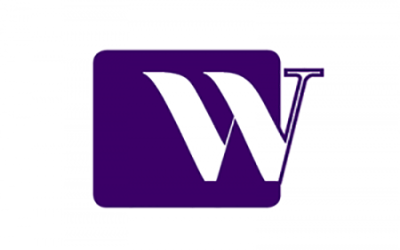Elizabeth Pulanco / Winonan
Technology is everywhere. From smartphones to laptops and tablets, students and citizens are finding themselves plugged in to the newest digital trend. Whether it is trying to catch a Pikachu on Pokémon Go, or using the new Snapchat filter with a group of friends. Winona State University’s theme for the academic year of 2016- 2017 will explore the impact of these devices and how they influence different communities.
The theme, called “Our Digital Humanity” hopes to bring the whole Winona State community together to examine and think about their relationship with technology and what it means.
Davin Heckman, mass communications professor and chair of the theme committee, has been involved with the topic of digital humanity since 2000, having done work with digital publishing and research on the use of technology in the home. Heckman is currently teaching a course on the topic.
When arriving at Winona State in 2013, Heckman began discussing the topic with new colleagues.
“When I started here, I started talking to some colleagues in different departments about the university’s engagement with the set of practices that are associated with digital humanities,” Heckman said. “In mass communications, we have a lot of interest in digital culture, so there has been people on campus who are curious and interested.”
Heckman has also invited speakers to discuss the topic.
With multiple speakers talking about digital humanity and the digital culture, Heckman and the other faculty members involved with the discussion began brainstorming ideas on how this topic could become a part of the university’s culture.
English professor Andrew Higl was one of the staff members involved with the brainstorming process.
“We’ve been working with folks in mass [communications] and the language department and we wanted to make some changes to the curriculum to offer digital humanities,” Higl said.
One of the main goals of the theme is to get the students and the community thinking critically about the different technical tools around them.
“We are a very tool-rich campus, but I think that we should be thinking purposefully about the tools we adopt, what they can do, what they can’t do and how they change what we do,” Heckman said.
As one of the first public universities to establish a laptop program, Winona State has worked to create a technology embracing culture. Thinking deeply about the different connections the students make through the technology is one of the focuses of the theme.
“Rather than just being passive consumers of digital culture, it is important to develop a critical awareness of it and a critical engagement with it so we understand what we are getting ourselves into on a daily basis,” Higl said.
Throughout the year, different events connected with the theme will be hosted around campus. Along with several speakers coming to the university, an exhibit in Watkins gallery will feature an experimental interface and 3D printed poems.
The International Digital Media Arts Association will also be hosting its 14th Annual Conference at Winona State, which includes discussions from a group of keynote speakers.
The first event for the theme is a kickoff event, which will feature digital interaction activities and a street party.
“We’re working on creating a virtual scavenger hunt that will allow students to learn more about the game as they play,” Higl said.
When looking toward the future and generating continuous interest in the topic, the theme team has big plans.
“By the end of the year, we hope to have a proposal for a minor,” Heckman said. “We are thinking about what the best strategy would be and there are two approaches. One is to identify students who have a high degree of competence in digital tools and methods and bringing them into close contact with a variety of artistic and humanities related approaches to those tools.”
The other approach is similar to the first approach, but Heckman hopes to take students who are involved with the humanities and give them experience and knowledge of the technical aspects.
Through creating a long-standing network of sources and interest, individuals involved with the creation of the theme hope to see the impact last for a long time.
“It’s like a recipe,” Heckman said. “Last year’s theme was important and we’ll be incorporating some of that into this year’s, and the next theme will be important too. Hopefully when we’re done, we’ll have a nice pot of stew.”











































